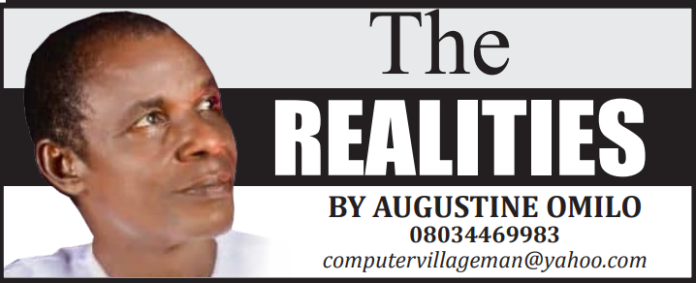The Microsoft Encarta Dictionary defines education as; “the imparting and acquiring of knowledge through teaching and learning, especially at a school or similar institution. ”The United Nations’ Education, Scientific and Cultural Organisation, UNESCO on its part defines it as “the process of facilitating learning or acquisition of knowledge, skills, values, beliefs and habits”.
Many nations of the world have imbibed the culture of offering quality education for their citizens with a view to providing high standards of living. For example, the first five largest economies of the world (USA, China, Germany, Japan and India)are equally known to be in the fore front of countries with robust and functional education system.
After the American Revolution (1775-1783), the founders of the United States argued that education was essential for the prosperity and survival of the new nation. Thus, Thomas Jefferson, author of the Declaration of Independence, proposed that Americans give a high priority to a “crusade against ignorance.”
Till date, America offers comprehensive free and compulsory education to her citizens to higher school level (12th grade) which is Nigeria’s equivalent of secondary school.
Education in the country have been found to be the most effective tool for continually reducing the prosperity gap between the rich and the poor in the society while at the same time promoting development with the spread of knowledge.
In Britain, education is compulsory for all children between the ages of 5 and 16. The Universal Basic Education policy recommends a program comprising 6 years of primary education and 3 years of junior secondary education in all nations of the world. And in line with the UNESCO policy on education, Nigeria formally legislated on an education pattern that entails the 6-3-3-4 system that ensures compulsory education of her citizens for 9 years from age 6 to 16. This rule came into effect in 1999 even though the practice was actually initiated in 1976.
However, the education of citizens has since taken a new and retrogressive dimension in the country. In 2022, UNESCO placed the number of out-of-school children at about 20.2 million. Bad as this finding is, many more young people are currently dropping out of schools due to heavy burdens of payment of tuition fees.
To worsen the matter, even those who are accessing education in the country are becoming very poorly educated due to inability to procure learning tools like computers and relevant textbooks. The public school managers are no longer dedicated towards qualitative education while the private ones are out of the reach of the down-trodden members of the society who can hardly feed themselves.
Contrary to the expectations of citizens, the federal and state governments have also increased tuition fees in government-owned schools. The student loan scheme promised by the government at the centre is yet to be implemented amidst fears that it is bound to fail like many other mismanaged education policies in the country.
For those who are eager to see Nigeria progressing to the next level of economic and scientific development, the wait may be longer than being envisaged. The reason is simple. The nation’s research base is depleting at a very fast rate. Well educated and potential researchers are leaving the country in droves. Those left behind are poorly remunerated and often left without research grants.
Meanwhile, if the anomalies currently embedded in Nigeria’s educational system are not urgently resolved, the state of poverty in the land stand to be worsened from the present par capital income that stands at about $2,600 when compared with that of the USA that is estimated to be $81,000.
The remedy for now lies in the libralisation of school fees payments in tertiary schools to accommodate installment payments spread over the period of course of studies. Given the pending difficulties in recovering students’ loans as result of the growing unemployment rate and level of insincerity among the people, an option of setting up education trust fund may be an option to be exploited. This will encourage individuals and corporate organisations to donate freely to an established pool of funds that can be accessed by deserving students without demanding repayments.
The use of Nigeria’s TETFUND- Tertiary Education Fund with an estimated balance of about N7trn should be repositioned to accommodate, not just the provision of building structures in universities, polytechnics and colleges of education, but also to assist indigent students.
Those responsible for supervising public school examinations in primary, secondary and tertiary schools must endeavour to put measures in place that will ensure appropriate punishment for erring pupils and students who have become partners in crimes with private school proprietors as examination cheats. Perhaps the template under which the May Flower Secondary School, Ikenne founded by late Dr. Tai Solarin need to be visited for innovative emulation.
On the whole, the bottom line remains the fact that failure to adopt a new positive approaches to education in the country in line with universally accepted norms portends great poverty danger to the 6th most populous nation of the world. This will not be fair to hopeful Nigerians with hope on the renewed hope agenda of President Bola Almed Tinubu.


